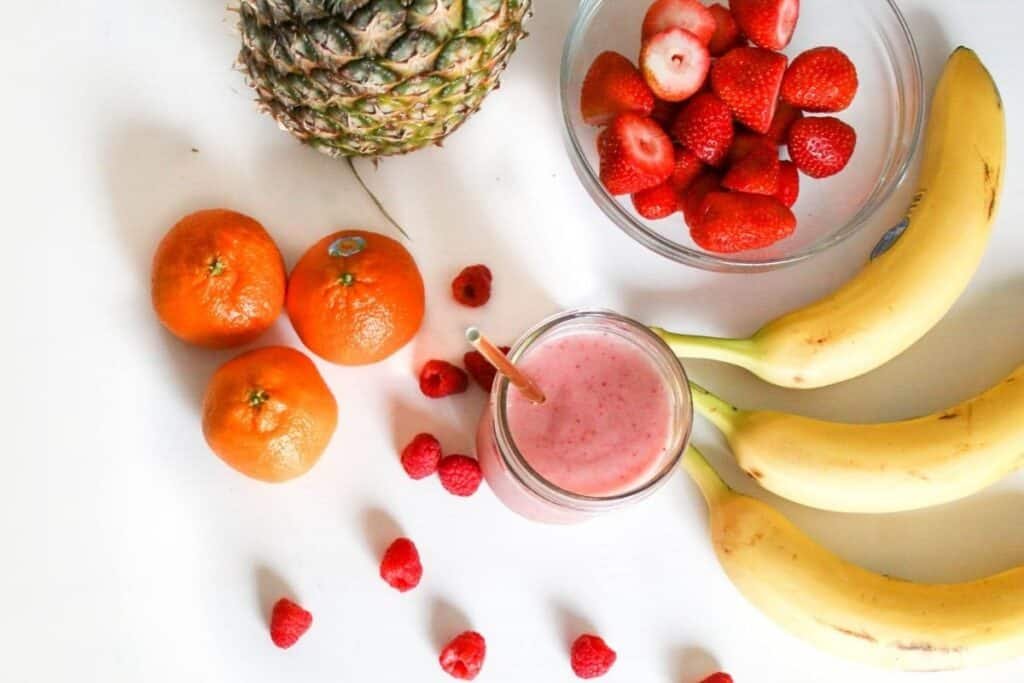Dealing with rodents often becomes a nuisance as you repeatedly terminate rodents but still discover rodent nests daily. When you face this question — what exactly is attracting the rodents?
Rats are attracted to items that contain sweet, sugary, or fatty substances. Some examples of these are chocolate, fruit, and cheese. This is why it is essential to keep your food, and water containers closed when not in use and clean them regularly.
Mice are attracted to locations that contain food, water, and shelter. Areas such as kitchens and trash cans often attract them. If you see rodent activity in a room, try to make the changes that will deter the rodents from coming back.
In this article, I’ll discuss why rodents are invading your house and how they get into your home.
If you have still been sitting idle with no game strategy against the pests, let me just set a timer for you. The clock is ticking — set up traps and tricks to terminate the rodents using these ten best pest control techniques that we have compiled.
What are Rodents Attracted to?
1. Buffets

Now do not sniff the extravagant rows of mouth-watering silver platters. Rodents and humans have quite a different definition of ‘Buffets.’
Moreover, unlike humans- rodents are not picky. Be it leftovers or crumbs- they will devour it, of course, as long as the container can be nibbled through.
Rodents don’t easily give up on their hunts no matter how hard the food placement is; therefore, make sure your airtight containers are nibble proof and don’t give off a whiff of yummy scents.
Here’s a list of all the favorite food of rodents, lock them up in airtight containers, or don’t bring it in since hiding away the food is not a solution.
- Nuts
‘Nuts’ have a high protein rate, and it’s irresistible to rats. Although, all nuts serve as an addiction to rodents. These are their top favorite nuts; peanuts, almonds, walnuts, and hazelnuts.
(Fun fact: This is where rodents’ love for peanut butter originates from.)
- Fruit and Berries
Rodents have a raging love for wild berries: raspberries, blackberries, and strawberries. Avoid planting these bushes in your garden unless you are willing to allow rodents to claim them.
Not only bushes but trees offering rodents an endless supply of fresh fruit like pears and apples are a big no, no.
Sure, you crave the sweetness of these fruits; easier for you to understand why rodents would too.
- Grains and Seeds
Perhaps rodents like a healthy meal too! Keep those ‘grains and seeds’ away from their claws — Oats are their favorite!
- Meat
Rodents do not go out to hunt meat, so maybe they aren’t that vicious after all.
Moreover, not all kinds of rodents eat up meat- mice and rats are the only ones who will gobble it up when it is found.
- Pet Food
Don’t worry about edibility! Rodents are non-fussy munchers and will happily gobble up all of your pets’ snacks regardless of the type of animal.
If others can eat it, then so can they.
- Animal and Food By-Products
Does it smell like food? If yes, then it’s a food source for the rodents.
The non-edibility of leather, cardboard, and worn clothes often doesn’t faze rodents as long as they are starving.
2. Dripping Water Pipes

Dripping water pipes are a perfect source of hydration for rodents. In cold weather, they can drink to keep warm, and in hot weather, they can quench their thirsty thirst.
Perhaps, you’ve never really paid attention to the tipping tapering of the water pipes of your home. Well, it’s about time you did!
With all the exercise rodents get in through their burrowing, it’s no surprise that they are thirsty rats. Seal up those dripping water pipes if you don’t want to invite the rodents in for some drinks.
3. Easy Access
Rodents are gymnasts by profession. They can slither in through even the smallest cracks or holes.
If you want to test rodents, leave open a ¼ inch crack — a rat infestation will surely bust in!
On a more serious note, you will find a plethora of these within your home — from the gap underneath your door to roof vents. Make sure to secure entry points of your home.
4. Plants
Both indoor and outdoor plantations interest rodents.
If your house is surrounded by weeds, twigs, grass, and bits of bark, rodents will reside there to nibble on the vegetation.
Moreover, indoor fruit and nut plants will drive rodents into your sweetly scented home. Plants pots that can provide shelter are a bonus for them.
Don’t walk past the large pots; always make sure to peer into them and avoid setting up plants that will attract rodents.
5. Pet Waste
Yes, the strong unsettling smell of digested food might not be our cup of tea, but it surely is a cup of feast for the rodents.
I wouldn’t imagine even rodents to be excited about gobbling up the waste provided by others. Perhaps, this is why they have been blessed with pet compost so many times.
Processed Food Is Still Food for Rodents!
6. Winter Season
This inevitable factor occurs when winter rolls around and rodents do not have a supply of your beanies and hoodies to keep themselves warm. However, they do have a stock of your house.
Thus naturally, rat infestations increase during winters. The best you can do is eliminate all other rodent attractions from your home, set up traps, and make it harder for them to get in.
Using bait or live traps during the winter season is more effective.
7. Human Intervention in Rodents’ Ecosystem
There is no denying that rodents are petite creatures. Any human intervention in the ecosystem will easily scare them away. This is why rodents avoid coming out in daylight.
And where will they go when havoc is being caused on the grounds of their home? Of course, to your sturdy, secure home where they seemingly cannot be harmed.
Little do they know your house will be no safer if you have set up rat traps.
8. Increase in Predators
This is one of the highly uncontrollable factors that attract rodents.
An ‘increase in predators’ outdoors will scare the rats and drive them indoors. The poor things discover too late that you are no less than a predator.
This can go either two way. In the first case, your house will have no entryways for rodents, and the rats will be terminated by the original predators.
In the second case, your house will have entryways that will allow a rat infestation to be created. This will then lead to you playing predator and rat-proofing your home by setting up traps and driving them out.
Let’s hope the first effortless case goes your way.
9. Trash

You know what they say- ‘One man’s trash is another rodent’s treasure.’
Especially if that rodent is very capable of nibbling through your plastic bags and scraps, you may assume that you have disposed of the leftovers and rodent attractors but have just hosted them a banquet.
Not only that — trash is an easy camouflage and habitat for rats. If left on their own for long, you will come back to their nests settled deep within the litter.
Therefore, always make sure to close the lids of your bins securely.
10. Clutter and Debris
Are you a messy person? Do your leave boxes of unknowns piling in the basement and heaps of clothing covering your floorboards?
Then certainly, the mice will be enjoying a game of ‘hide and seek’ under all the clutter. A hidden space means a safe space for them. And when they are provided a safe space indoors near food and water- they will occupy it to the best of their abilities.
Clear away the mess from your attics and basement — do not make their bedding for them.
11. Undisturbed Vehicles

As much as we would like to believe it, rodents do not live exclusively in our homes. They are opportunistic beings and will take advantage of any opportunity that presents itself.
One such opportunity is the presence of unattended vehicles sitting outside in the open. Not only can they access anything inside, but the engines, ventilation systems, and wiring are all perfect places for them to reside.
Make sure your cars are locked up at all times and avoid leaving any valuable items inside.
They might even end up gnawing on insulation and other wiring and gift you some costs.
Moreover, as mentioned earlier, rodents love clutter. Therefore if your car is filled with a bunch of random things, including leftover chocolate and food- we all know you have befriended mice.
Keep your vehicles running from time to time and keep them clean and pristine.
Why Are Rodents Attracted to My House?
Your house will be attractive to rodents if it equips them for survival by providing them with water, food, and shelter. Leaking pipes and open water sources will hydrate them, leftovers in the bin will feed them, and endless clutter will shelter them and help them remain unseen.
The warm-blooded creatures naturally look for a warm place to nest. For this reason, your home is the perfect haven for them.
Since you cannot eliminate the warmth, you have to put more effort to get rid of the other attractions- food, water, and clutter.
How Do Rodents Get in Your House?
Rodents, with their flexibility, can fit through the smallest of holes, i.e., a ¼ inch is enough. Rodents can enter your house through the following pathways:
- Floorings
- Walls
- Foundations
- Windows
- Ceilings
- Drainage pipes
- Sewer lines
- Plumbing and gas lines
To prevent mice from entering your home through these entranceways, make sure to seal them properly. A more elaborate description of how to properly close these entryways has been specified in this article.
What Happens If a Mouse Gets in Your House?

Rodents and nibbling come hand in hand. Rats are prone to nibbling on wires which, often results in short-fire circuits. Mice can also chew through gas lines, rubber, furniture, clothes, drywall, and aluminum. They will also eat almost anything.
Furthermore, wild rodents can bite humans and spread diseases.
Rodents are unlikely to attack humans unless they are cornered or feel dangered. But if they do bite, it leaves a puncture wound and a risk of infection.
Since a rat pees a lot, you can easily identify its presence by seeing droppings or urine in your house.
Moreover, the dead rodent smell is often contagious.
Rodents eat between 15 to 20 times a day. Therefore do expect a lot of damage on their part. Since a lot of this damage is dangerous, it is even more essential to prevent mice from getting it in the first place.
Conclusion
Now that you aren’t entertaining all the unwanted guests in your house- the rodents- you are likely to have more time to breathe a sigh of relief.
With the elimination of the 11 attractions that were bringing around the rodents, you have also terminated the dangers that they came with.
Let’s also pop a rodent repellent in cheers to a cleaner house!
